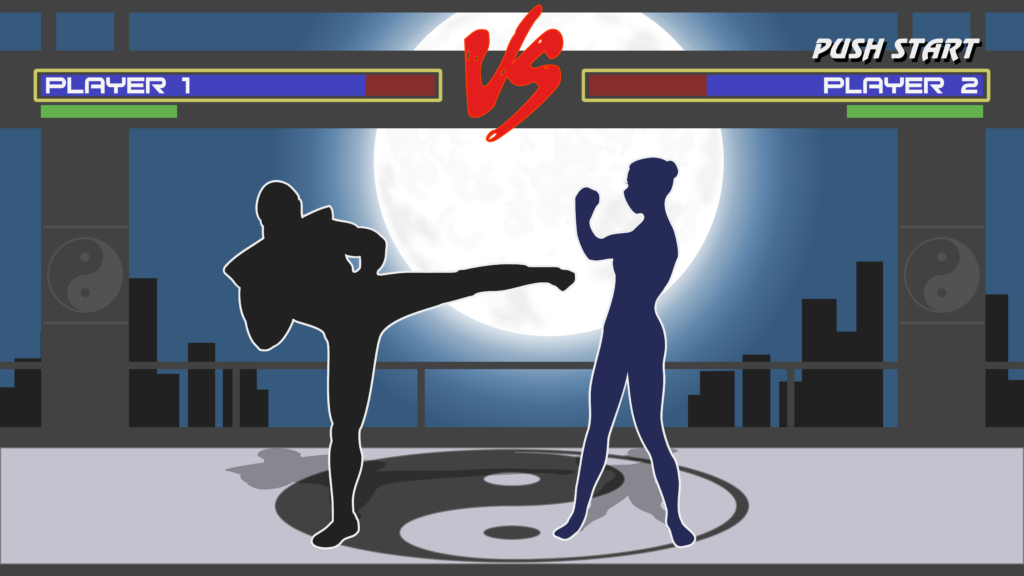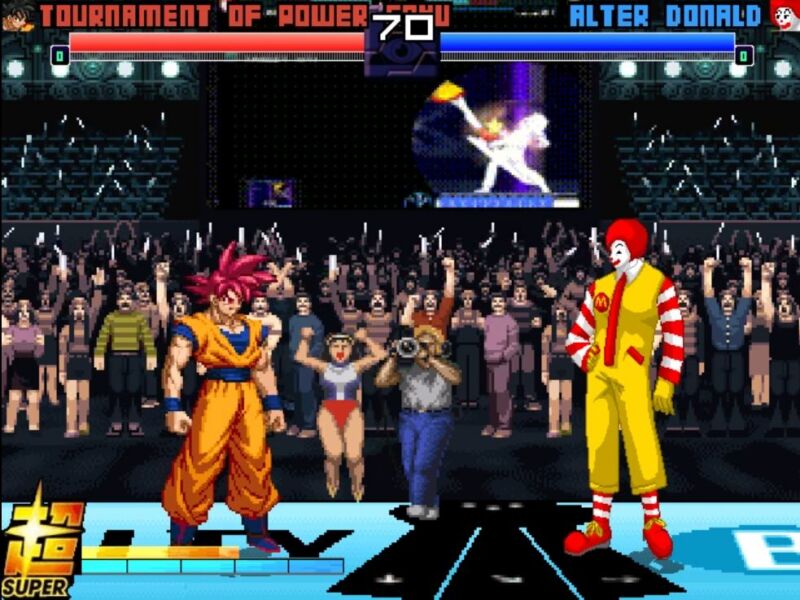U-M origins of legendary gaming mystery revealed

From the explosion of home consoles to the first-ever 3D and online games, the 1990s were witness to huge leaps in video game design. Alongside the advent of entirely new gaming genres and technologies, it was a spin on a classic – the 2D fighting game – that gave rise to one of the most persistent video game mysteries of all time.
Any fighting game enthusiast will have heard of MUGEN, a video game engine released in 1999 that gave users a level of control over game content that was unprecedented. Specifically, MUGEN, styled as a standard 2D fighting game à la Mortal Kombat, allowed players to create their own characters, and the gaming community rose to the challenge. Artists and programmers from across the globe created thousands of fighters, based on both original designs and popular characters from TV shows and other media.
The creators of MUGEN, however, have been unknown and have staunchly maintained their anonymity for decades. Now, recently resurfaced legal documents have revealed that the three creators of this game engine are, in fact, alums of the University of Michigan, two of them hailing from the EECS Department.
MUGEN, known by many as the infinite fighting game, was unmatched in the creative freedom it afforded its users. It was also one of the first games to mobilize a massive online audience and community of modders.
“MUGEN was an early, stand-out example of user-generated content. It gave users a degree of artistic license that had never been seen in the fighting genre,” said Austin Yarger, CSE teaching faculty and video game development expert. “It unleashed a global community of fans and creators (and copyright dissidents) that is still active to this day, illustrating the power of games and unsponsored modding communities as a force for expression.”
This incredible creative output from the community resulted in some surprising and even bizarre matchups. Picture Spongebob Squarepants defeating Homer Simpson by blowing bubbles at him, and you’ll get the idea.

Despite the buzz surrounding MUGEN, its creators remained anonymous, known only by their company Elecbyte, fueling speculations about who was behind this inventive advance in gaming. Then, in 2003, at the height of its popularity, Elecbyte vanished. The site shut down, and all communication from the creators ceased.
“Elecbyte’s disappearance was a blow to the MUGEN community,” said Yarger. “For such an impactful and successful company to simply disappear – it left quite the mystery, and the internet loves a good mystery.”
Although the MUGEN site saw a resurgence in the late aughts, as well as several spinoffs, its initial release and impact haven’t been repeated, and the identities of its designers have remained a mystery. Until now, that is.
Recent sleuthing by internet denizens uncovered a copyright infringement notice from 2009, which the owners of Elecbyte filed against a website trying to monetize the MUGEN engine. The notice revealed that Elecbyte was based in Ann Arbor, MI. Further investigation of Michigan’s public business entity records confirmed this, as well as revealing the names of Elecbyte’s founders, all of them U-M alums.
While we won’t reveal the identities of these alums here to preserve their continued privacy, we can say that they’ve gone on to have successful careers in software engineering and business that are a testament to their innovative beginnings in the gaming world.
Although one central riddle of this long-time gaming legend may have been solved, we may never know why MUGEN’s creators abandoned the project. Even so, MUGEN, its successors, and its broader impact on the video game world continue to live on. And U-M continues to be an influential player, so to speak, in this sector, with a rich and thriving game design community and an educational environment that fosters creativity and innovation.
“Greater than the mystery of its creators or the enigma of its disappearance, MUGEN’s legacy lies in the freedom and creativity it instilled in its players,” said Yarger. “And U-M should be proud to be the birthplace of this gaming first.”
 MENU
MENU 
